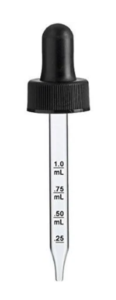CBD interactions are real – though they’re not common. Here’s what you need to know.
If you ask a logical, well-rounded person what the most important thing in life is to him or her, I can assure you that almost all of them will answer “their health.”
With the continuous pursuit of health and wellness in this day and age, more and more people are looking at new, more natural ways to treat their health conditions and body ailments.
With this, cannabidiol or CBD has gathered steam with its many benefits not just medically but in other aspects of daily living as well.
CBD with Medication
Using CBD in conjunction with other medications is a concern some CBD users have since they are also taking other substances or medications to manage health conditions that CBD might not directly heal or impact.
For us to identify the interaction of CBD with other medications, we must first understand CBD’s relationship and impact on the Cytochrome P-450 System, or more aptly referred to as CYP450.
The CYP450s are enzymes mainly involved in drug metabolism. Found in our livers, the CYP450 enzyme system metabolizes compounds that we intake that are potentially toxic or hazardous. The drugs and medications we take account for about 60% of this possible toxicity.
Different components impact CYP450s in different ways; they are either induced or inhibited. There are certain foods, beverages, and drugs that inhibit the CYP450 enzyme system.
At high concentrations, starfruit and grapefruit juice are known to cause an inhibiting effect to CYP450s. So does tobacco smoking and eating the watercress vegetable.
CBD and CYP450
CBD affects this the CYP450 system in that it restrains or inhibits its ability to process certain drugs. When this happens, it will increase the likelihood of overdosing of some of the drugs that you take. In this case, it is always best to consult with your doctors so they can adjust the dosage of your medication.
According to Project CBD, “at sufficient dosages, CBD will temporarily deactivate cytochrome P450 enzymes, thereby altering how we metabolize a wide range of compounds.”
Administering CBD together or simultaneously with other drugs is safe provided that your doctor is able to manage the dosage of your medication.
CBD Interactions
CBD Oil Review provides a listing of drugs that cannabidiol might interact with:
- Steroids
- HMG CoA reductase inhibitors

- Calcium channel blockers
- Antihistamines
- Prokinetics
- Immune modulators
- Benzodiazepines
- Antiarrhythmics
- Antibiotics
- Anesthetics
- Antidepressants
- Beta-blockers
- PPIs
- NSAIDs
- Angiotensin II blockers
- Oral hypoglycemic agents
- Sulfonylureas
These are commonly prescribed drugs that many of us take on a regular basis. However, not all of these are proven to interact with CBD. Some might not be affected at all with CBD intake. So better err on the side of caution and consult with your doctor or medical professional.
Now, let’s say you are trying to recuperate from a recent illness and are currently taking medications for that. Usually, your dosage will depend on your situation. So if you are taking both medication and CBD, it is best to take the latter sparingly unless otherwise cleared by your physicians.
Photo by rawpixel on Unsplash
